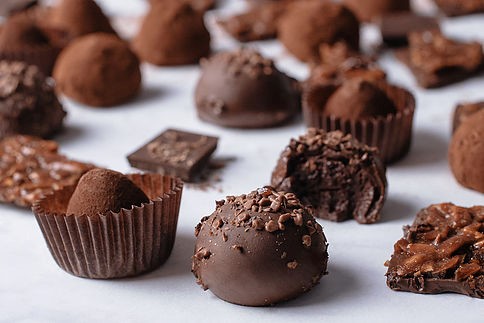
Are You in Control or is Food Controlling You?
Have you ever had a stressful day and turned to the pantry to seek out that bag of chips or candy?
Have you ever sat in front of the TV and by the end of your show realized that you had finished a whole bag of chips when you had planned to only eat a few?
Have you felt like food has helped you unwind after a long, stressful day?
Have you ever realized that you eat a certain way in certain situations? Like indulging a little bit too much when you are socializing with friends, especially when it's over a few glasses of wine?
Sound familiar? These are signs of stress eating and mindless eating.
A Common Phenomenon?
These are common scenarios when speaking to my patients and I've experienced such mindless eating myself as well! We eat for many reasons... and understanding the reasons for our choices is an important key when it comes to changing lifestyle and habits. Asking yourself whether you have such behaviors related to food can be eye-opening. Often, you may realize you are filling some other void or need with an "easy" solution that may not serve you in the long run.
High calorie (high fat, high sugar) highly-palatable "comfort foods" can serve as "triggers" that can derail our best intentions. We may crave them in times of stress because they result in reward centers in the brain to release "feel good" hormones that make us feel good in the moment, but long-term lead to body fat gain, fatigue (sugar crash), and don't provide us with nutrition (empty calories).
Why, what and how we eat are a complex process that takes place on a subconscious level. Food choices are affected by many things like social interactions, cultural customs, memories and habits, to name a few.
What should you do if you think you are stress eating?
If you find that stress leads to behaviors as those described above, consider digging a little deeper. Are you experiencing depression or anxiety that you may be "self-treating " by using food to fill a void in your life? Could you be suffering from an eating disorder like binge eating?
If you think you may be depressed or you have concerns about having an eating disorder (for more information on what the signs are, please see: https://www.nationaleatingdisorders.org), and speak with your doctor to get help.
There are behavioral therapies and medications that can help treat these serious conditions. Keep in mind it's important to not only recognize stress eating, but also work to find other things that bring you joy, comfort and self care.
What can you do to break the cycle?
The answer is to be mindful and really think about why you are eating. Take a pause. Break the associations. Eat intentionally.
- Break the associations. If you are in the habit of sitting down after the kids are in bed and watching TV, check yourself. Is that time also associated with mindless snacking?
If so, turn the TV off and go read a book in a different room. Do your work in your office instead of in the kitchen. Take a walk and work to- Break the association!
- Find other ways to manage your stress. Meditation, exercise, time with friends and family and building a self care routinely are great ways to manage stress. Don't wait for your next vacation to get your "me time".
- Be intentional. If you are going to indulge in dessert or a delicious bowl of icecream, make that decision intentionally. You can take control of the situation and make the choice to have that treat rather than feel like it "just happened". You make the choice, enjoy, and no guilt. Move on... at the next meal/opportunity, consider your WHY again when faced with a craving.
- Identify triggers. If you have certain foods that "trigger" you to eat poorly, you can stop having them in your pantry. Instead, choose to have healthier options readily available to you in those moments when you feel like a snack. Last, realize that alcohol lowers our inhibitions, and you could end up making choices that are not in line with what you are trying to accomplish.
Remember, food is not only for nourishment, but also for pleasure. Our brains were wired this way because our survival depends on our enjoyment of food. In this age of abundant and highly processed foods readily available, as well as the complex pathways in our brain, we have to be more mindful of choices in the moment. Moments add up... AND...
Our health depends on it.
In health,
Richa Mittal MD
The Content is not intended to be a substitute for professional medical advice, diagnosis, or treatment. Always seek the advice of your physician or other qualified health provider with any questions you may have regarding a medical condition.

